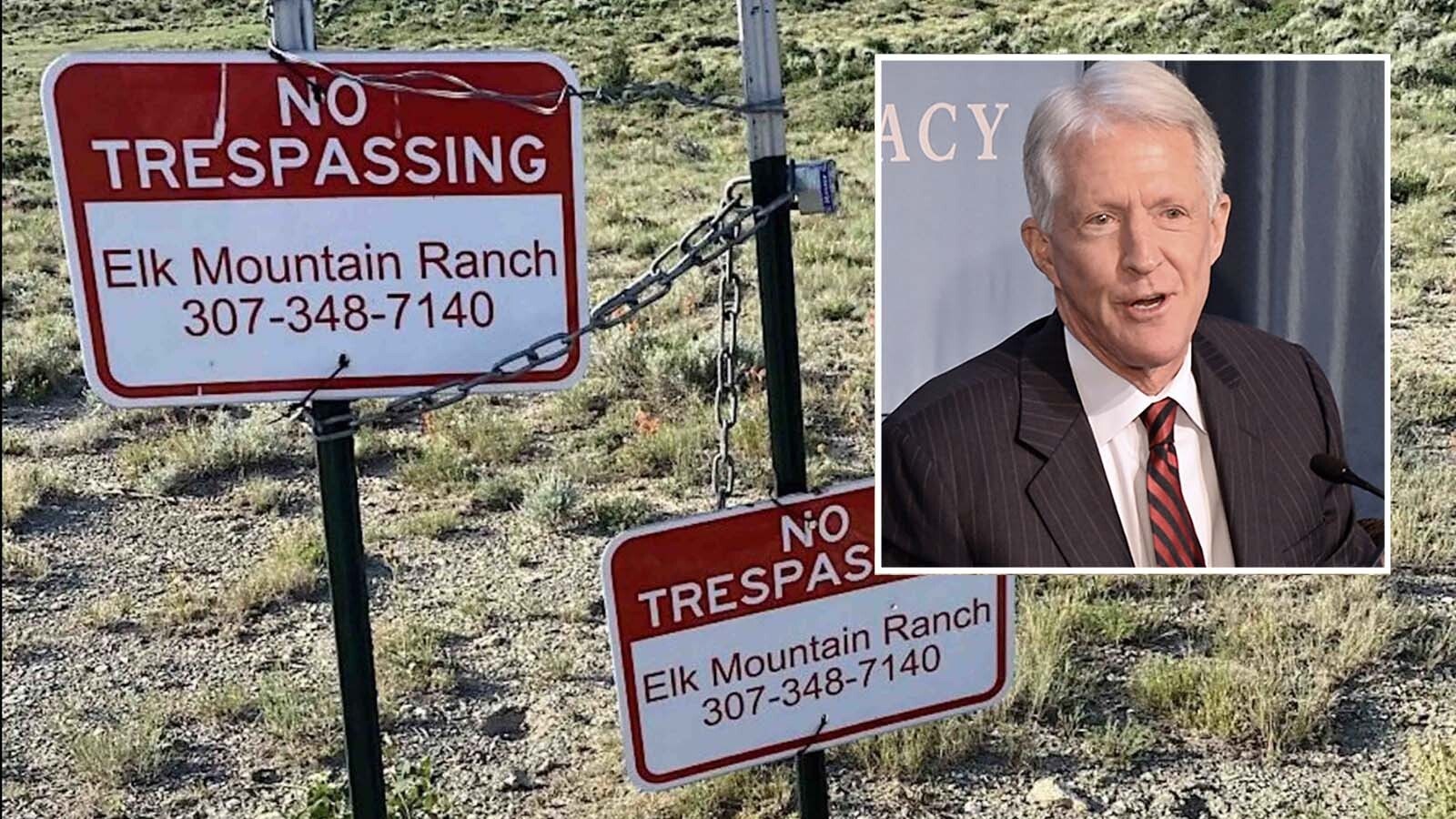Some 76 conservation groups recently submitted a petition seeking a ban on the M-44, a mechanical device used to kill coyotes and protect livestock on federal land.
The M-44, referred to as a "cyanide bomb" in the petition, is a spring-loaded device that delivers a dose of sodium cyanide powder when triggered by a predator. The devices also contain a bait to attract predators and kill almost instantly.
The M-44 was invented in the 1960s and has been widely used in Western states by Wildlife Services, a federal agency under the U.S. Department of Agriculture. The M-44 replaced a device known as a "coyote getter" that used a .38-caliber pistol cartridge to contain the sodium cyanide mixture and eject the poison with a primer.
Kills More Than Coyotes
The petition claims that along with coyotes, M-44s also kill non-target wildlife, pets and people, although the latter has never been reported.
On March 11, 2017, three dogs were killed near Casper by an M-44. Five days later on March 16, 2017, a 14-year-old Pocatello, Idaho, boy triggered an M-44 while out walking his dog.
Canyon Mansfield suffered from headaches and sleeplessness after the accident. His dog was killed. Mansfield later told the Idaho State Journal he thought the device was a sprinkler head.
After the incident, Mansfield and his parents traveled to many states to lobby for banning use of the M-44. That effort culminated in a bill known as "Canyon's Law" that was recently introduced to the U.S. Congress.
The petition claims Mansfield was "spared death" that day because the wind direction carried the sodium cyanide powder away from him. Mansfield went on to earn a 4-A Idaho State Wrestling title in 2021.
"Sadly," the petition states, "this tragedy is only one of many that have occurred in the past and are likely to occur in the future if these dangerous devices remain in use."
M-44s Still Viable Options, Wyoming Rancher Says
Further, the petition says numerous alternative tools exist to address livestock-predator conflicts and eliminate the need for M-44s.
"The Interior Department and the BLM should not wait for another tragedy on their lands, nor should they wait on Congress to finally implement a ban on M-44s," the petition continues. "The American people — and our wildlife and companion animals — deserve to be safe from poison on public lands."
Jim Magagna, executive vice president of the Wyoming Stock Growers Association, said conservation groups can be prone to inflating the truth when it comes to lobbying politicians and the general public.
Magagna, who has owned livestock and worked on behalf of Wyoming ranchers for more than 45 years, said livestock protection has evolved with new technology and although there are many more tools in use today, the importance of the M-44 remains.
"In some locations you can't get in and do direct control work, like around young calves or lambs" Magagna said. "We have more tools now than we have ever had, but nothing eliminates the need for the M-44."
Wyoming has vast expanses of open land where predators nearly always hold an advantage over livestock, he said. Other tools in use to control coyotes include aerial shooting, trapping and the use of guard dogs around flocks and herds.
Don’t Call Them ‘Cyanide Bombs’
Magagna said he's never seen any evidence that M-44s kill non-target species. He said it's plausible that one of the devices could kill a wolf. Wolves are classified as predators throughout Wyoming except in a trophy zone around Yellowstone National Park.
Red foxes, racoons, porcupines and skunks are all listed as unprotected predators in Wyoming.
Magagna also refuted the use of the term "cyanide bomb" in the conservation groups' petition.
"I think the use of the term ‘bomb’ is a pretty big exaggeration," he said. "When a coyote pulls on it, it shoots poison right into its mouth. It doesn't shoot over a broad area and it doesn't disturb the soil, so I think that term exaggerates how they work."
Magagna added that some of the other claims made in the petition are not realistic. He said electrified netting works to protect livestock in small farm settings but is not practical on large swaths of public land where livestock predominantly graze in Wyoming.
Sheep operators tried the netting on a U.S. Forest Service grazing allotment and found that it caused more damage than it was worth. It kept the sheep bunched up too closely at night, which damaged the plants and compacted soil.
Federal predator control experts are required to put up signs on public land to alert passersby about the presence of M-44s.
Magagna said M-44s aren't the No. 1 tool in the livestock protection toolbox, but they are critical to address predation.
The petition was mailed to the federal agencies June 29. The lead organizations in support are the Center for Biological Diversity and Predator Defense.





